
Stare Mesto: The Heartbeat of Historic Prague
Stare Mesto, or Old Town, is the historical epicenter of Prague. With its cobblestone streets, Gothic architecture, and iconic landmarks, it offers a glimpse into the city's rich past. The Old Town Square is the heart of Stare Mesto, where you can marvel at the Astronomical Clock, a medieval wonder that has been keeping time since 1410. The square is also home to the Church of Our Lady before Týn, a stunning example of Gothic architecture that dominates the skyline. Wandering through Stare Mesto, you'll discover a labyrinth of narrow alleys and hidden courtyards, each with its own unique charm. The Charles Bridge, a stone Gothic bridge adorned with statues, connects Old Town with the Lesser Town and is a must-visit. Street performers and local artists line the bridge, adding to its vibrant atmosphere. Stare Mesto is also a hub for culture and entertainment. The area boasts numerous museums, galleries, cafes, and restaurants, offering everything from traditional Czech cuisine to international delights. Don't miss the Klementinum, a historic complex of buildings housing the National Library, or the Old Town Hall, which offers panoramic views of the city from its tower.
Local tips in Stare Mesto
- Visit early in the morning to avoid crowds, especially at popular spots like the Astronomical Clock and Charles Bridge.
- Wear comfortable shoes to navigate the cobblestone streets and narrow alleys.
- Take a guided walking tour to learn about the rich history and hidden gems of Stare Mesto.
- Sample traditional Czech dishes at local eateries, but also explore international cuisine options.
- Don't forget to look up; the architecture is as impressive above as it is at eye level.
Iconic landmarks you can’t miss
Old Town Square
Experience the enchanting blend of history and culture at Old Town Square, Prague's iconic plaza filled with stunning architecture and vibrant life.

Prague Astronomical Clock
Discover the enchanting Prague Astronomical Clock, a medieval marvel combining artistry and astronomy in the heart of Old Town, Prague.
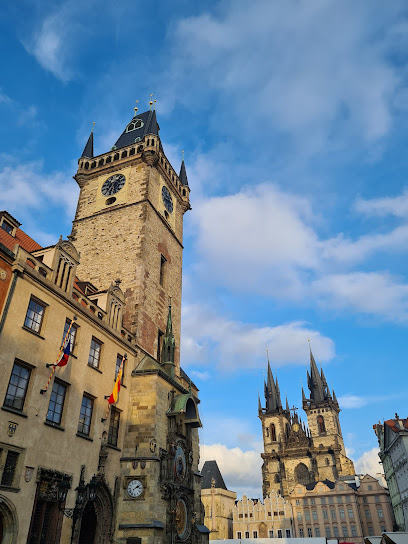
Prašná brána
Explore Prašná Brána, a stunning Gothic landmark in Prague, rich in history and architectural beauty, offering breathtaking views and vibrant surroundings.
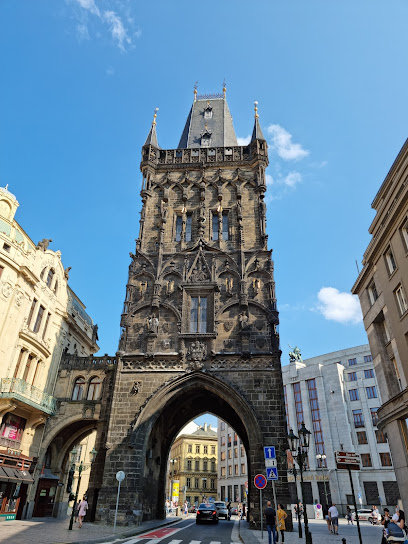
Klementinum
Discover the historical marvel of Klementinum, a stunning Baroque complex in Prague, rich in culture and breathtaking views.
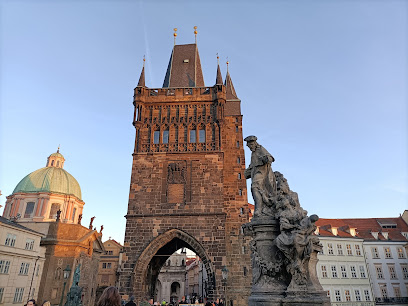
Old Town Bridge Tower
Explore the Old Town Bridge Tower, a historical landmark in Prague that offers stunning views, rich history, and architectural beauty.
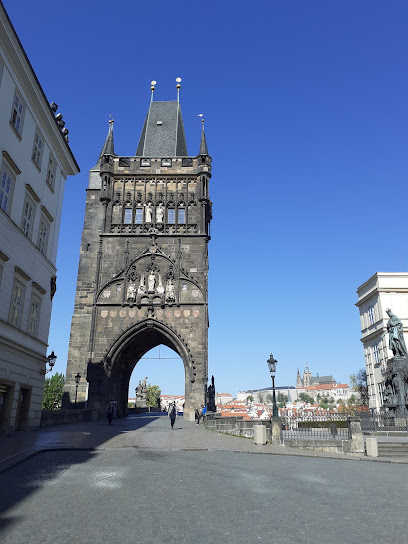
Prague Meridian
Explore the Prague Meridian, a historical landmark in the heart of the Old Town, blending stunning views with rich cultural heritage.
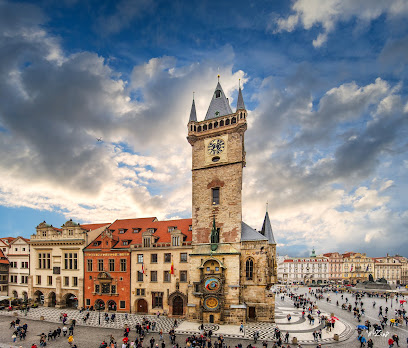
Old Town Underground
Delve into the depths of Prague's history at the Old Town Underground, a captivating glimpse into the city's medieval past and hidden secrets.
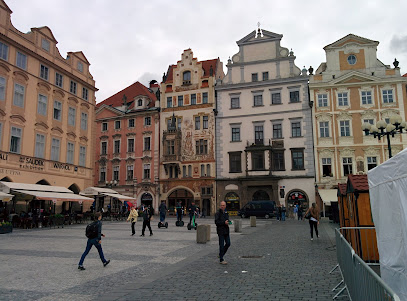
Mariánský sloup
Discover the iconic Mariánský Sloup in Prague's Old Town Square, a stunning Baroque monument symbolizing the city's rich history and cultural resilience.
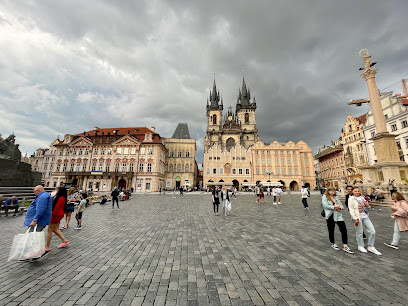
Křižovnické náměstí
Experience the historical charm of Křižovnické Náměstí in Prague's Old Town, where culture and architecture blend seamlessly in a picturesque setting.
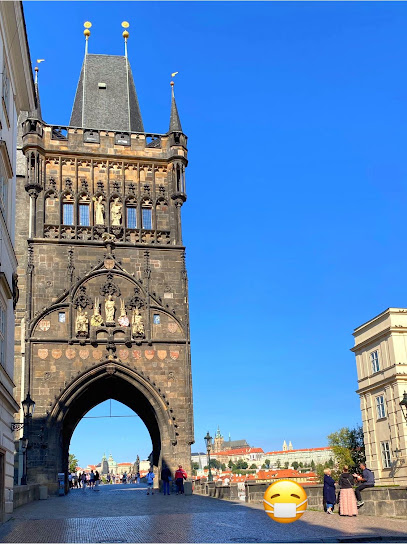
Memorial plaque to the victims of the 1945 Prague Uprising
Explore the Memorial Plaque to the Victims of the 1945 Prague Uprising, a powerful reminder of courage and resilience in the heart of Old Town, Prague.
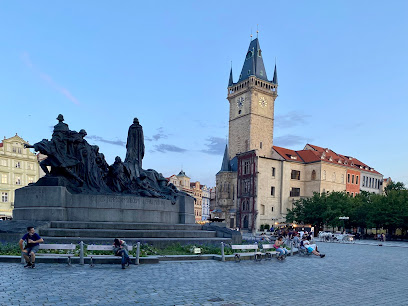
Unmissable attractions to see
Prague Astronomical Clock
Witness the enchanting hourly show of the Prague Astronomical Clock, a medieval masterpiece in the heart of Prague's Old Town Square.
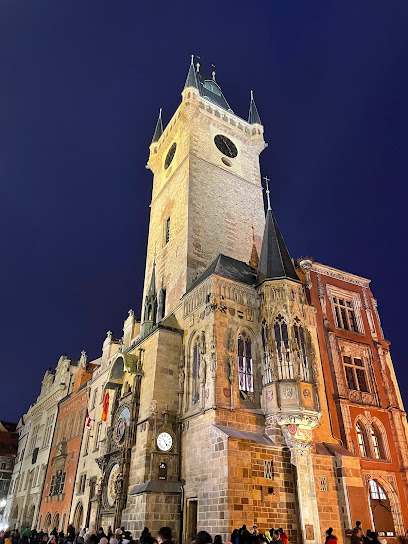
Lego Museum
Explore over 3,000 Lego models in Prague's heart, from landmarks to movie scenes. A bricktastic journey for all ages!
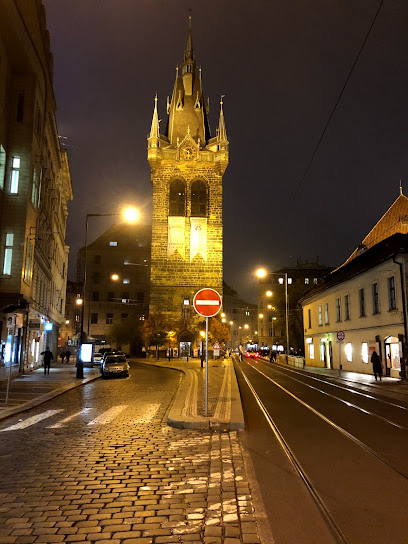
Old Town Underground
Uncover Prague's hidden history beneath Old Town Square: explore medieval tunnels, chambers, and dungeons.
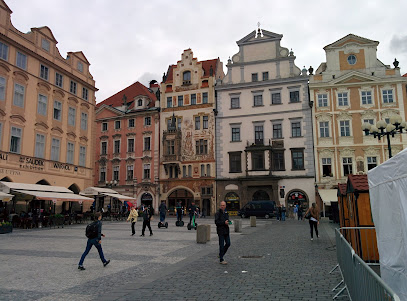
Essential places to dine
Restaurace Mincovna
Discover authentic Czech cuisine and craft beer at Restaurace Mincovna in the heart of historic Josefov.
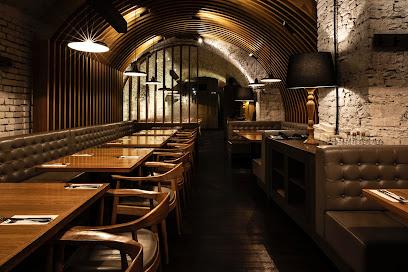
Restaurant Mlýnec
Savor exquisite modern European cuisine with stunning views at Restaurant Mlýnec in Prague's Old Town.
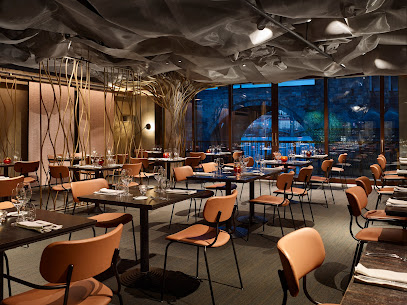
Restaurace Mlejnice
Savor traditional Czech cuisine at Restaurace Mlejnice in Prague's Old Town - A delightful dining experience awaits!
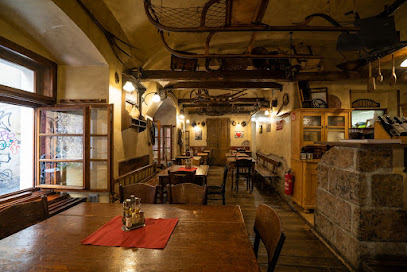
GamberoRosso
Experience authentic Italian cuisine at GamberoRosso in Old Town; famous for its wood-fired pizzas and inviting atmosphere.
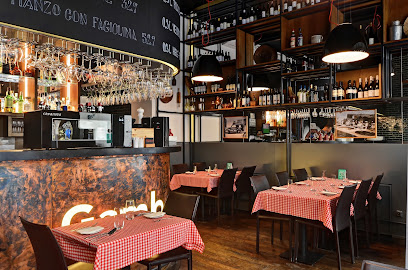
U Červeného páva
Experience the best of Czech cuisine at U Červeného páva in Old Town - where tradition meets taste in a cozy setting.
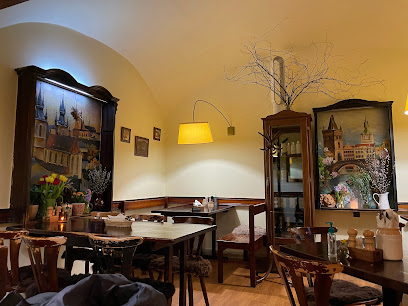
Restaurace U Dvou velbloudů
Experience authentic Czech cuisine at Restaurace U Dvou velbloudů in Old Town – where tradition meets taste.
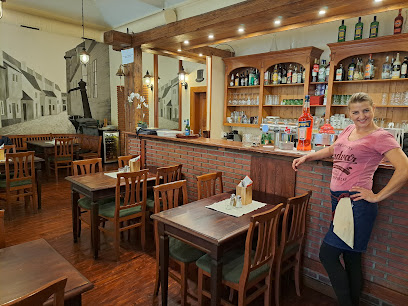
V Zátiší
Experience the pinnacle of fine dining at V Zátiší in Prague’s Old Town – where innovative cuisine meets exceptional service.
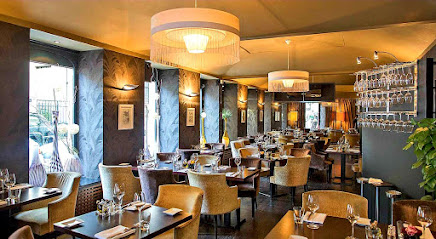
U modré kachničky II
Experience authentic Czech cuisine at U modré kachničky II in Prague's historic Old Town - where tradition meets modern dining.
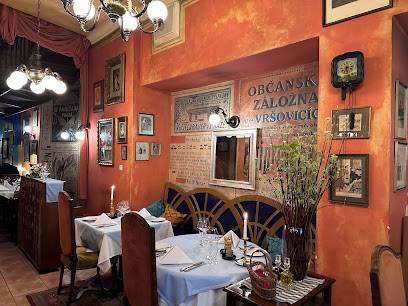
La Degustation
Experience the exquisite flavors of Czech cuisine at La Degustation, where tradition meets innovation in fine dining.
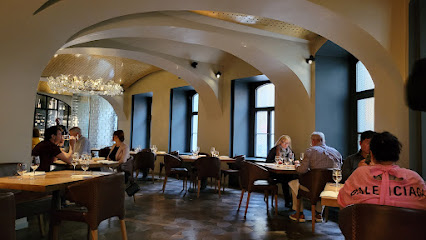
Mama Lucy
Discover authentic Czech cuisine at Mama Lucy in Old Town Prague – where tradition meets flavor in every dish.
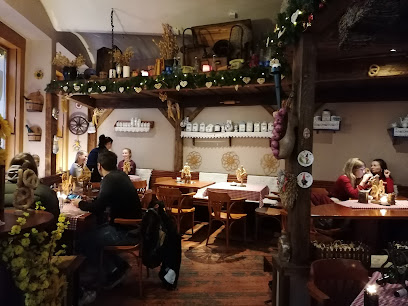
Markets, malls and hidden boutiques
Shopping centrum Černá růže
Explore the vibrant Shopping Centrum Černá Růže in New Town, offering a wide array of shops, dining options, and entertainment for an unforgettable experience.
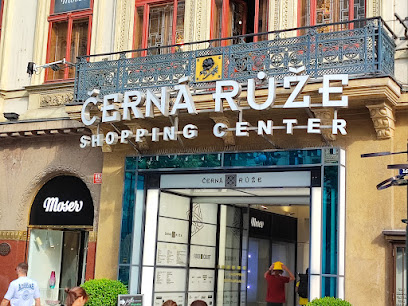
THE VINTAGE PRAGUE
Uncover timeless treasures at The Vintage Prague, where every piece tells a story and vintage fashion comes alive.
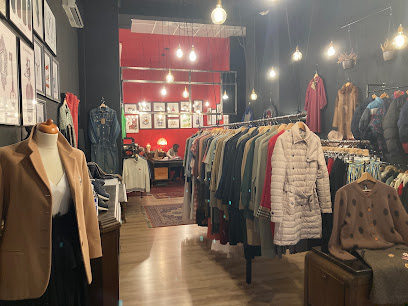
LOCAL ARTISTS
Discover the artistic heart of Prague at Local Artists, where unique handcrafted treasures await every traveler seeking authentic souvenirs.
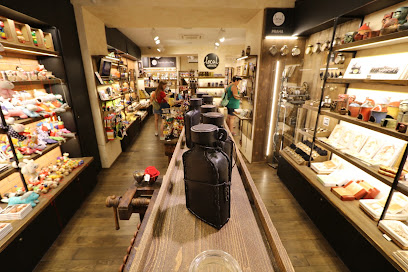
Bric a Brac Antiques
Explore Bric a Brac Antiques in Prague's Old Town for a unique selection of collectibles and a glimpse into the past's timeless elegance.
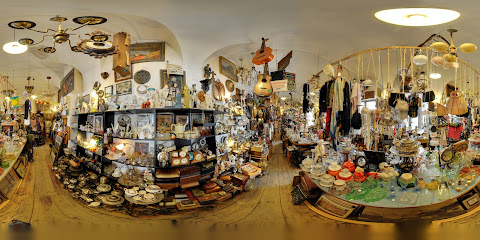
Fashion Shop PARAZIT
Explore the vibrant styles of Fashion Shop PARAZIT in Old Town, a haven for fashion lovers seeking unique and trendy clothing.
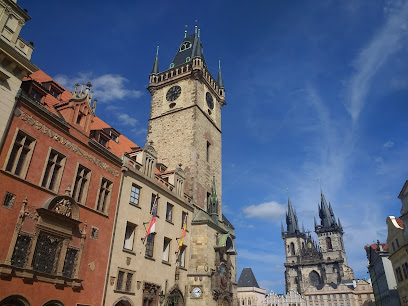
HipStar retro-vintage store
Explore HipStar retro-vintage store in Prague's Old Town for unique fashion finds that blend nostalgia and style, perfect for every trendsetter.
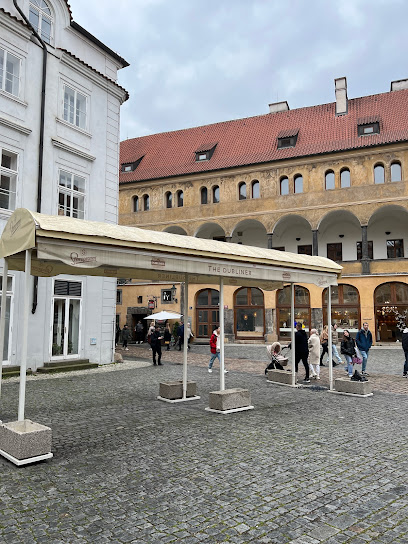
MAGES art souvenirs & poster store
Explore MAGES art souvenirs & poster store in Old Town for unique gifts and art that capture the essence of Prague's vibrant culture.
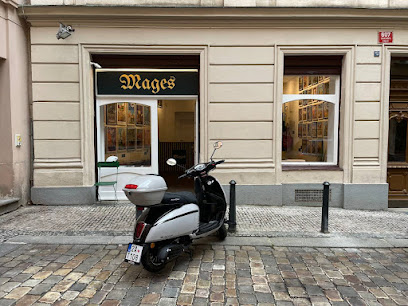
Old Prague Souvenir shop
Explore the Old Prague Souvenir Shop for unique Czech gifts and authentic local crafts in the heart of Old Town.
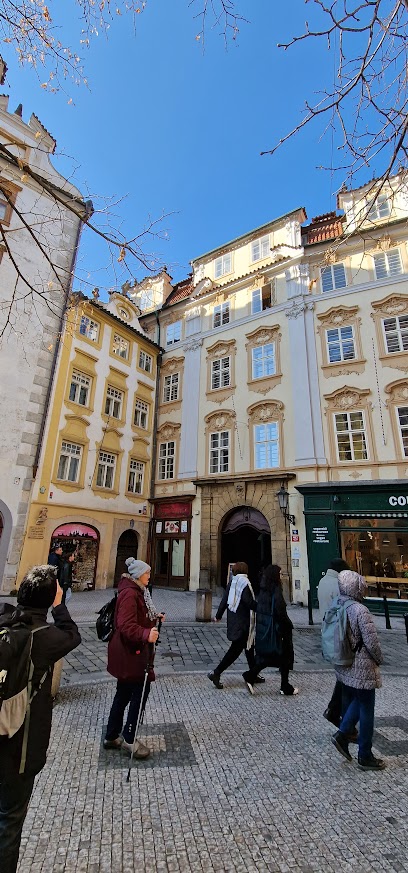
Place Store Praha
Explore Place Store Praha in Old Town for a unique shopping experience, featuring local crafts and trendy fashion in the heart of Prague.
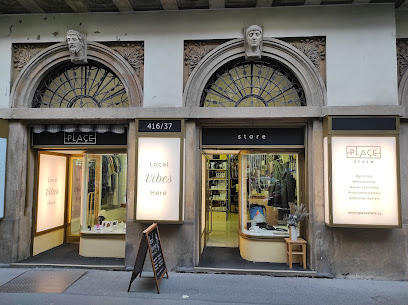
Prague Souvenirs Shop
Discover unique gifts and authentic souvenirs that embody the spirit of Prague at the charming Prague Souvenirs Shop in Old Town.
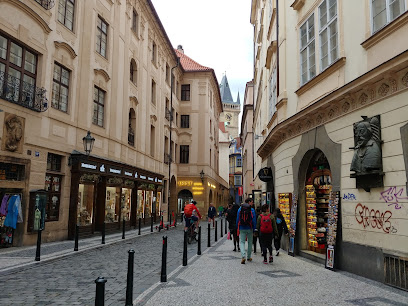
Duck Boutique
Explore Duck Boutique in Old Town for unique gifts, local art, and handcrafted treasures that capture the essence of your travels.
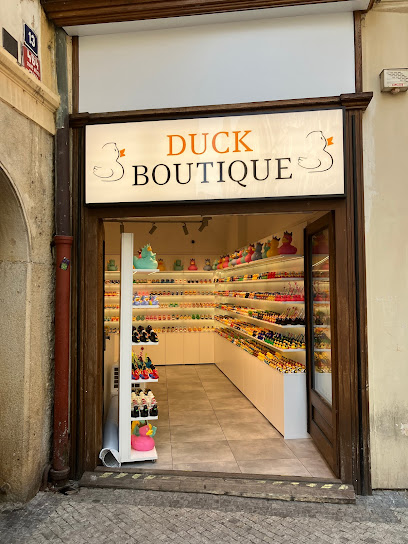
Essential bars & hidden hideouts
The Dubliner Irish Bar
Discover the lively spirit of Ireland at The Dubliner Irish Bar in Prague, where traditional music meets hearty meals and a welcoming atmosphere.
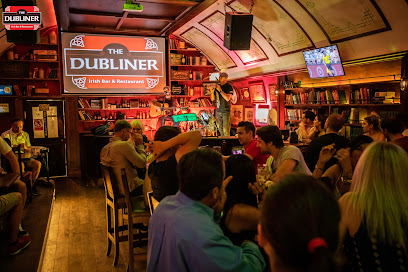
Hemingway Bar
Discover the charm of Hemingway Bar in Old Town Prague, where literary elegance meets exquisite cocktails in an inviting atmosphere.
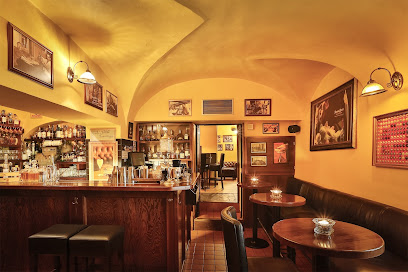
Anonymous Bar
Experience innovative cocktails in a quirky ambiance at the Anonymous Bar, a must-visit cocktail haven in Old Town Prague.
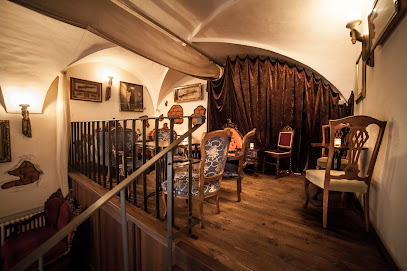
My People Bar
Experience the vibrant fusion of live music and delicious cuisine at My People Bar in Old Town, Prague's must-visit gastropub.
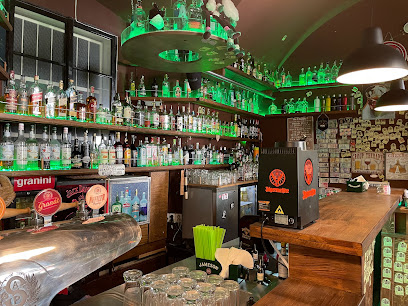
Black Angel's Bar
Experience the unique blend of exquisite cocktails and vibrant ambiance at Black Angel's Bar in the heart of Prague's Old Town.
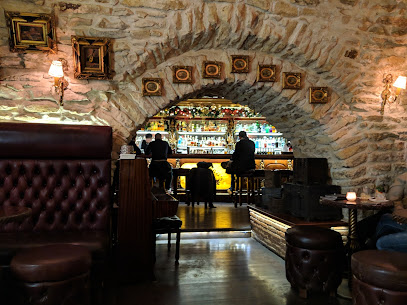
McCarthy's Irish Pub
Experience the heart of Ireland in Prague at McCarthy's Irish Pub, where live music, hearty food, and a vibrant atmosphere await.
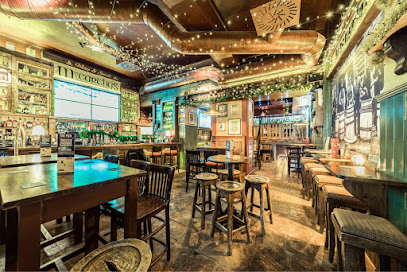
The Alchemist Bar
Experience the enchanting atmosphere and innovative cocktails at The Alchemist Bar in Old Town, where every drink tells a story.
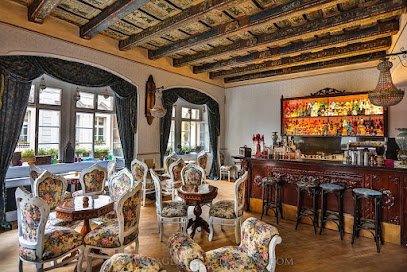
L'Fleur
Experience the art of cocktail making at L'Fleur, Old Town's sophisticated bar offering innovative drinks and a chic atmosphere.
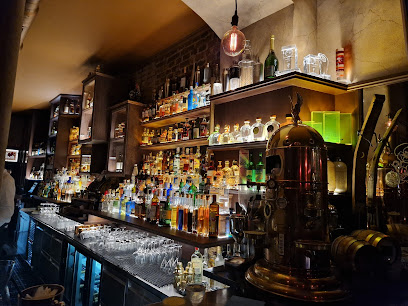
Orange Bar Prague
Discover the lively vibe of Orange Bar Prague, where exceptional drinks and a warm atmosphere await you in the heart of Old Town.
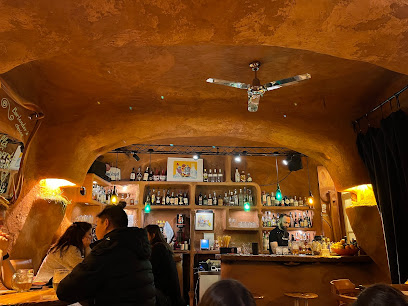
Tynska Bar and Books
Experience elegance at Tynska Bar and Books, where fine cocktails and premium cigars meet the sophisticated atmosphere of Prague's Old Town.
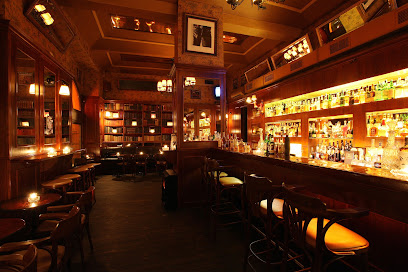
Local Phrases
-
- HelloAhoj
[ahoy] - GoodbyeNa shledanou
[na shledanou] - YesAno
[ah-noh] - NoNe
[neh] - Please/You're welcomeProsím
[pro-seem] - Thank youDěkuji
[dyeh-koo-yi] - Excuse me/SorryPromiňte
[proh-mee-nye-teh] - How are you?Jak se máte?
[yak seh mah-teh] - Fine. And you?Dobře. A vy?
[dob-reh. ah vy] - Do you speak English?Mluvíte anglicky?
[mloo-vee-teh ahn-gleet-skee] - I don't understandNerozumím
[neh-roh-zoo-meem]
- HelloAhoj
-
- I'd like to see the menu, pleaseRád bych viděl menu, prosím
[rahd bikh vee-dyel meh-noo, proh-seem] - I don't eat meatNejím maso
[neyeem mah-soh] - Cheers!Na zdraví!
[na zdrah-vee] - I would like to pay, pleaseChtěl bych zaplatit, prosím
[kh-tyel bikh zap-la-teet, proh-seem]
- I'd like to see the menu, pleaseRád bych viděl menu, prosím
-
- Help!Pomoc!
[poh-mohts] - Go away!Jdi pryč!
[ydee preets] - Call the Police!Volat policii!
[vo-lat poh-li-tsee] - Call a doctor!Zavolejte doktora!
[zah-vo-ley-teh dohk-toh-rah] - I'm lostZtratil jsem se
[ztrah-teel ysem seh] - I'm illJsem nemocný
[ysem neh-mohts-nee]
- Help!Pomoc!
-
- I'd like to buy...Chtěl bych koupit...
[kh-tyel bikh koh-pee-t...] - I'm just lookingJen se dívám
[yen seh dee-vahm] - How much is it?Kolik to stojí?
[kol-eek toh stoh-yee] - That's too expensiveTo je moc drahé
[toh yeh mohts drah-heh] - Can you lower the price?Můžete snížit cenu?
[moo-zheh-teh snee-zheet tseh-noo]
- I'd like to buy...Chtěl bych koupit...
-
- What time is it?Kolik je hodin?
[kol-eek yeh hoh-deen] - It's one o'clockJe jedna hodina
[yeh yed-nah hoh-dee-nah] - Half past (10)Půl jedenácté
[pool yed-nyan-tseh] - MorningRáno
[rah-noh] - AfternoonOdpoledne
[ohd-poh-led-neh] - EveningVečer
[veh-chehr] - YesterdayVčera
[v-cheh-rah] - TodayDnes
[dnes] - TomorrowZítra
[zee-trah] - 1Jedna
[yed-nah] - 2Dva
[dvah] - 3Tři
[tshi] - 4Čtyři
[ch-tihrzhee] - 5Pět
[pyet] - 6Šest
[shest] - 7Sedm
[sedm] - 8Osm
[osm] - 9Devět
[deh-vyet] - 10Deset
[deh-set]
- What time is it?Kolik je hodin?
-
- Where's a/the...?Kde je...
[kde yeh] - What's the address?Jaké je adresu?
[yah-ke yeh ah-dreh-soo] - Can you show me (on the map)?Můžete mi ukázat (na mapě)?
[moo-zheh-teh mee ooh-kah-zat (nah mah-peh)] - When's the next (bus)?Kdy jede další (autobus)?
[kdee yeh-deh dah-lshee (ow-toh-boos)] - A ticket (to ....)Jedno jízdenku (do ...)
[yed-noh yeez-dehn-koo (doh)]
- Where's a/the...?Kde je...
History of Stare Mesto
-
Stare Mesto, or the Old Town, was founded in the 13th century and quickly became a crucial commercial hub in medieval Bohemia. Its strategic location along the Vltava River facilitated trade routes connecting central Europe, contributing to its prosperity. The establishment of the Old Town Square as a marketplace marked the beginning of its urban development.
-
During the 14th century, under the rule of Charles IV, Stare Mesto experienced significant architectural growth, with the construction of the Charles Bridge and the Gothic-style Church of Our Lady before Týn. This period marked the height of medieval power and culture in Prague, making it a center for art, education, and trade.
-
The early 15th century saw Stare Mesto embroiled in the Hussite Wars, a series of conflicts stemming from religious reform movements. The Old Town was a stronghold for the Hussites, and key battles took place in and around the city. The wars initiated a significant transformation in the religious landscape of Bohemia and influenced the sociopolitical fabric of the region.
-
The 16th century brought the Renaissance to Stare Mesto, characterized by a flourishing of arts and sciences. The Old Town Hall, including its iconic astronomical clock, was completed during this period. This era was marked by cultural exchanges with Italy and other European regions, enhancing Prague's reputation as a cultural capital.
-
The 17th century was defined by the Baroque architectural style, visible in the construction of St. Nicholas Church. However, the Thirty Years' War devastated the area, leading to economic decline and a demographic shift. The war's aftermath saw a resurgence in Baroque architecture as reconstruction efforts took place.
-
The 19th century brought modernization to Stare Mesto, with the expansion of infrastructure and urban planning under the Austro-Hungarian Empire. The city transformed with the creation of new avenues and the introduction of public transportation. This period also saw the rise of national movements, which began to shape Czech identity.
-
During World War II, Stare Mesto was occupied by Nazi forces, leading to significant hardships for its Jewish population. The post-war period saw the restoration of Prague's historical sites and a revival of its cultural life, despite the looming shadow of Soviet influence during the communist regime.
-
The peaceful Velvet Revolution of 1989 marked the end of communist rule in Czechoslovakia, leading to a resurgence of cultural and historical appreciation in Stare Mesto. Today, it stands as a vibrant neighborhood, melding its rich historical heritage with modern life, attracting millions of tourists seeking to experience its storied past.
Stare Mesto Essentials
-
Stare Mesto (Old Town) is centrally located in Prague and is easily accessible from other neighborhoods. You can reach Stare Mesto via the Prague Metro by taking Line A to Staroměstská station, which is right by the Old Town Square. Alternatively, trams 5, 8, 12, 15, and 20 stop nearby. If you're coming from Prague's main train station, you can take tram 26 or a short walk (approximately 20 minutes). Taxis and rideshare services are also available throughout the city.
-
Stare Mesto is a pedestrian-friendly neighborhood, making it ideal for exploring on foot. Many of the main attractions, such as the Astronomical Clock, Charles Bridge, and the Jewish Quarter, are within walking distance. For longer distances, public transport options, including trams and buses, are efficient and affordable. Bicycles can be rented from various vendors, but be cautious of tram tracks and pedestrian areas.
-
Stare Mesto is generally safe for tourists, with a low crime rate. However, be cautious of pickpockets, especially in crowded areas like Old Town Square and on public transport. Avoid poorly lit streets at night and stay alert in busy tourist spots. There are no specific high-crime areas, but maintaining awareness of your surroundings is advised.
-
In case of an emergency, dial 112 for police, fire, or medical assistance. The nearest hospital is the General University Hospital in Prague. It is advisable to carry a small first aid kit for minor injuries and ensure that you have travel insurance that covers medical emergencies. Pharmacies are widely available for over-the-counter medications.
-
Fashion: Do dress appropriately, especially when visiting churches; avoid overly casual attire. Religion: Do respect local customs and traditions; cover shoulders and knees when entering religious sites. Public Transport: Do validate your ticket before boarding; don’t engage in loud conversations. Greetings: Do greet locals with a friendly 'Dobrý den' (Good day); don’t assume everyone speaks English. Eating & Drinking: Do try local dishes like goulash; don’t eat while walking in the streets, as it is considered disrespectful.
-
To experience Stare Mesto like a local, visit the farmer's market at Náplavka on Saturdays for fresh produce and artisan goods. Try to explore the side streets for hidden cafes and shops away from the main tourist paths. Attend a local concert or event at venues like the Rudolfinum or the Estates Theatre for a taste of Czech culture. Lastly, try to learn a few basic Czech phrases; locals appreciate the effort.
Nearby Cities to Stare Mesto
-
Things To Do in Kutná Hora
-
Things To Do in Plzeň
-
Things To Do in Hradec Králové
-
Things To Do in Karlovy Vary
-
Things To Do in Dresden
-
Things To Do in České Budějovice
-
Things To Do in Český Krumlov
-
Things To Do in Brno
-
Things To Do in Linz
-
Things To Do in Leipzig
-
Things To Do in Olomouc
-
Things To Do in Wroclaw
-
Things To Do in Nuremberg
-
Things To Do in Vienna
-
Things To Do in Opole



